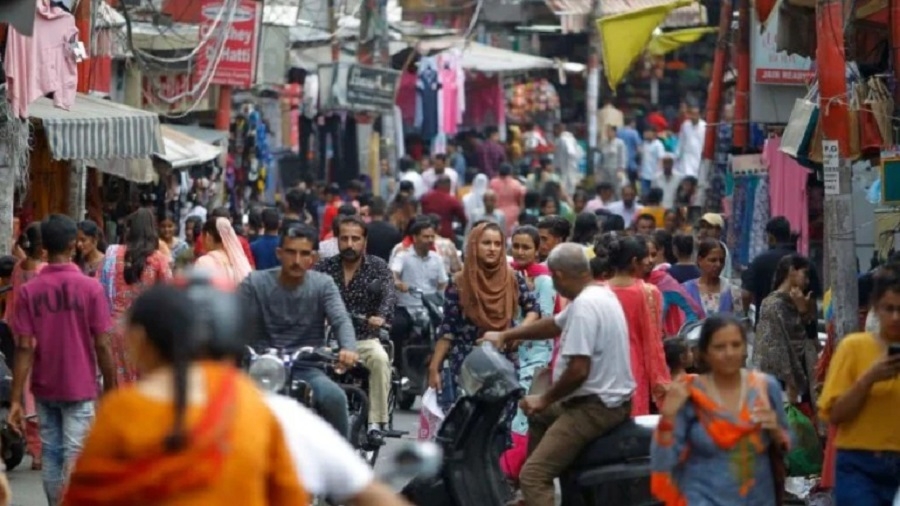Pak’s Discomfort
| Date :14-Aug-2019 |

By Maj. General S.B. Asthana:
While the discomfort of Pakistan and to some extent China, due to scrapping of Article 370 in Jammu and Kashmir, was unwarranted, but expected, it was regrettable that some segments of global media chose to carry propaganda stories, based on fake news propagated by interested parties.
THE peaceful celebration of Eid although at reduced scale, demolishes the propaganda fuelled by countries/media houses/politicians, who stand disappointed as they were waiting for violence to break out in Kashmir, post abrogation of Article 370. The historic moment revoking Article 370 in Jammu and Kashmir (J&K), happened on August 6, 2019, when the Bill was passed by more than two third majorities in both houses of Parliament, through the laid down democratic process in consultation with Sadr-e Riyasat vested in Governor of the erstwhile State.
The Bill reorganises the erstwhile State of J&K into two separate Union Territories (UTs), J&K being one and Ladakh being another UT. Prime Minister Modi has clarified in his address to the nation that once there is peace, Statehood will be returned to J&K. Ladakh, however, will remain a UT. This reorganisation is purely an internal matter of India; however, a few countries seemed to be extremely rattled over this development, while most of them chose to treat it as a bilateral/internal matter.
While the discomfort of Pakistan and to some extent China was unwarranted, but expected, it was regrettable that some segments of global media chose to carry propaganda stories, based on fake news propagated by interested parties. While India has no reason to be concerned about their desperation, for ill conceived reasons, some of the facts to mitigate some common international misperceptions need to be highlighted.The countrymen have to invest in these regions for mutual prosperity. Regarding Pakistan, all actions taken by them were well anticipated and thought through. Whatever it does to interfere in Kashmir, it is going to harm itself. J&K remains integral part of India and the country is well poised to handle any awkward situation.
Facts versus Propaganda: After partition of India and Pakistan in 1947, the State of J&K was an Independent State under Maharaja Hari Singh, which was attacked by Pakistani razakars to capture it by force. Maharaja signed the Instrument of Accession to India for the entire State (including Pakistan occupied Kashmir, Gilgit- Baltistan, Shaksgham Valley and Aksai Chin) and Indian Forces were flown in which saved the remaining State of J&K. One of the global daily in its article quoted “Article 370 had been considered a cornerstone of Kashmir’s inclusion in India during the 1947 partition that separated India and Pakistan following the end of British colonial rule”.
The fact is that there was no Article 370 in 1947, as part of Instrument of Accession. It was introduced later, drafted on 5 Mar 1948 and amended on November 15, 1952. Pakistan and terrorists are rattled because it was done with such a speed that it caught them by surprise and made their efforts to disrupt peace unviable incident free Eid celebrations, although on low key, are enough to demolish the claim of propaganda oriented fake media coverage indicating heavy violence. Why was Article 370 Revoked Now?: Indian resolve to revoke temporary Article 370 and 35a in J&K was a national call, in the national interest and the ruling party was voted with thumping majority (including people of J&K) with this cause in their manifesto.
These provisions were made by decision makers in 1952 purely under Indian Constitution. Article 370 was drafted in Amendment of the Constitution section, in Part XXI, under Temporary and Transitional Provisions. In last few decades it was seen that these provisions have been hurting India and common people of Jammu and Kashmir since many decades. Kashmiri Pandits, who are natives of Kashmir were forcibly pushed out by motivated groups, which was the biggest abuse of power, which left India helpless in mitigating their grievances, due to such provisions.
They were being misused by a few local politicians, separatists, elite businessmen aligned to them, terrorists and their supporters, brewing inequality, depriving of legal benefits and welfare related laws for common people, thus proving to be a hindrance in inclusive growth of the country. Why is Pakistan Rattled?: Pakistan, despite being an aggressor in 1947, seems rattled with abrogation of Article 370 and 35A in J&K to an extent that it took certain reckless actions. Lowering of diplomatic relations with India, scrapping trade ties, stopping rail communication and blocking a few air routes are some examples.
The main reason for Pakistan’s frustration is that its terrorists fuelling proxy war in Kashmir will be devoid of political patronage, the separatists will be exposed to Central security forces and laws, and its terror industry/infrastructure built in Kashmir over decades will start weakening. Pakistan’s effort of approaching UNSC has no future, as is evident from the factual analysis above.
If they still approach UNSC, then as per UN Security Council Resolution 47, adopted on 21 April 1948, there is no case for motion in UNSC, because Pakistan and China will have to be reminded to vacate PoK, Gilgit-Baltistan and Shaksgham as first step of UNSC Resolution47, which may not suit either of them. What Next for India?: Abrogation of Article 370 and 35A was a big leap forward for inclusive growth of India, but the implementation of promised reforms and a positive environment in the Valley will still take some time. The first priority will continue to be the safety and security of all Indian citizens in J&K and Ladakh, for which the methodology seems to have been well thought through. India should continue with tight restrictions on potential problem creators and flash spots at least till August 15, even at the cost of some inconvenience to people. graduated manner.